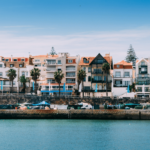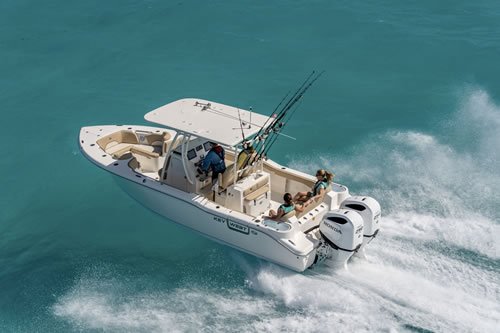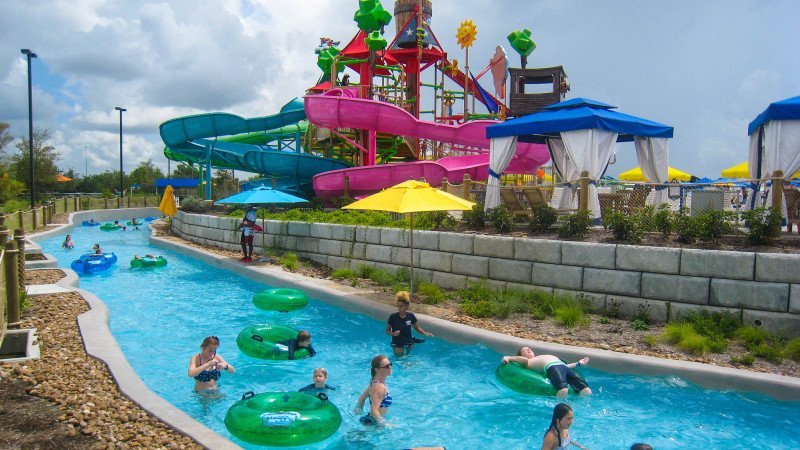Boating is a great way to unwind yourself and explore the beauty of nature. It can also help you in creating lasting memories with your loved ones. However, it is still important for you to focus more on your safety as you go ahead with boating. Considering the best yacht rentals is also a must. This is why we thought of sharing a few boating safety tips with you. By adhering to these safety tips, you can ensure your safety as well as the safety of others who travel with you.
Prepare before you leave
Before you ever leave the dock, preparation is the key to a safe boating vacation. Conduct a comprehensive pre-departure inspection to make sure your boat is in good functioning order. Verify the engine, lighting, navigational equipment, and lifesaving equipment including life jackets and floating devices. Also, check the fuel levels. Learn how to operate the boat’s controls and emergency procedures and provide a friend or family member a copy of your route along with a float plan.
Wear a life jacket at all times
On the sea, life jackets are your best line of defines. Wear a suitable, properly-fitting life jacket at all times, regardless of your swimming prowess or the state of the water. Make sure that each passenger has a life jacket that is the right size and is easily accessible. You should keep in mind that accidents can occur at any time, and a life jacket might be the difference between life and death.
Understand navigational guidelines and aids
Learn the navigational guidelines and tools particular to the river you wish to travel before you go out. Learn to read nautical markers, buoys, and lights so you can go securely through channels and can be aware of any risks. Respect the local speed limits and any laws that are in place.
Keep Up with Weather Conditions
On the ocean, the weather can change quickly, and being caught in a storm can be dangerous. Prior to leaving, always check the weather prediction, and be informed while traveling. Consider delaying your travel to a safer time if bad weather is expected.
Never use drugs or alcohol
It is not only prohibited but also exceedingly dangerous to operate a boat while intoxicated. Accident risk can be increased by these drugs’ ability to impair judgment, coordination, and response times. If you want to drink on the water, pick a driver who won’t use drugs or alcohol.
Maintain a Safe Distance from Other Boats and Hazards
To prevent collisions, you must keep a safe distance from other boats, swimmers, and permanent obstructions. On the water, adhere to the “Rules of the Road” and be always aware of your surroundings. To avoid accidents, drive more slowly in congested places and respect no-wake zones.
Take Carbon Monoxide (CO) Poisoning Seriously
Carbon monoxide (CO) levels can reach lethal levels when a boat has an enclosed cabin or is operating close to an exhaust outlet. Always make sure there is enough ventilation, and use caution while floating or idling for a prolonged length of time. Onboard CO detectors should be installed, and all passengers should be informed on the signs of CO poisoning.
Keep a VHF radio
In the event of an emergency or when you want help, a VHF (Very High Frequency) radio is a useful communication tool that enables you to get in touch with marinas, other boats, or the Coast Guard. VHF radios, in contrast to mobile phones, operate on open channels intended for maritime communications, guaranteeing you have dependable connectivity even in distant locations.
Rehearse overboard drills
Situations involving men overboard can be quite difficult, and the capacity to carry out efficient rescue techniques is essential. Plan and rehearse an overboard drill with your crew to make sure everyone is aware of their responsibilities and what to do in case of an emergency. In these circumstances, time is of important, and readiness can save lives.
Install GPS and navigational equipment
The position, speed, and direction of your boat are all important pieces of information that a GPS (Global Positioning System) and other navigational equipment give. Particularly when traversing uncharted seas or in poor visibility, these tools are essential. Never go without a backup or paper charts in case an electronic device fails.
Carry first aid and safety gear
Accidents can occur anywhere, so being ready is essential. Maintain a first aid kit that is fully equipped with bandages, antiseptics, painkillers, and other crucial medical supplies on board. Make sure you also have emergency equipment on hand, like flares, a flashlight, a whistle, and a Signaling mirror in case you need to call for help.
Create an emergency contact list and a float plan
Your trip’s specifics, such as the start and finish hours, desired routes, and locations, are described in a float plan. Give a trustworthy person a copy of your float plan so they can alert the police if you don’t return when expected. Keep a list of emergency numbers with the Coast Guard, neighborhood authorities, and marinas close by.
Learn how to read charts and basic navigation
While GPS gadgets are necessary, it is still beneficial to be able to read conventional nautical charts and navigate using a compass. You can travel more securely if you comprehend chart symbols, depth soundings, and landmarks, particularly in places where electronic navigation may not be as accurate.
Conduct routine maintenance inspections
Safety on the water depends on routine maintenance of your boat’s mechanical and electrical systems. As per the manufacturer’s instructions, check and maintain your engine, fuel systems, steering, and electrical components. On the water, the danger of malfunctions and accidents is decreased by proper maintenance.
Final words
Always keep these boating safety tips in mind. Then you will be able to ensure maximum safety while you are in the water. You can make unforgettable memories with boating adventures like this. If you need any professional help, feel free to ask for them as well. Then you can enjoy your boating adventures without having to worry about anything.











